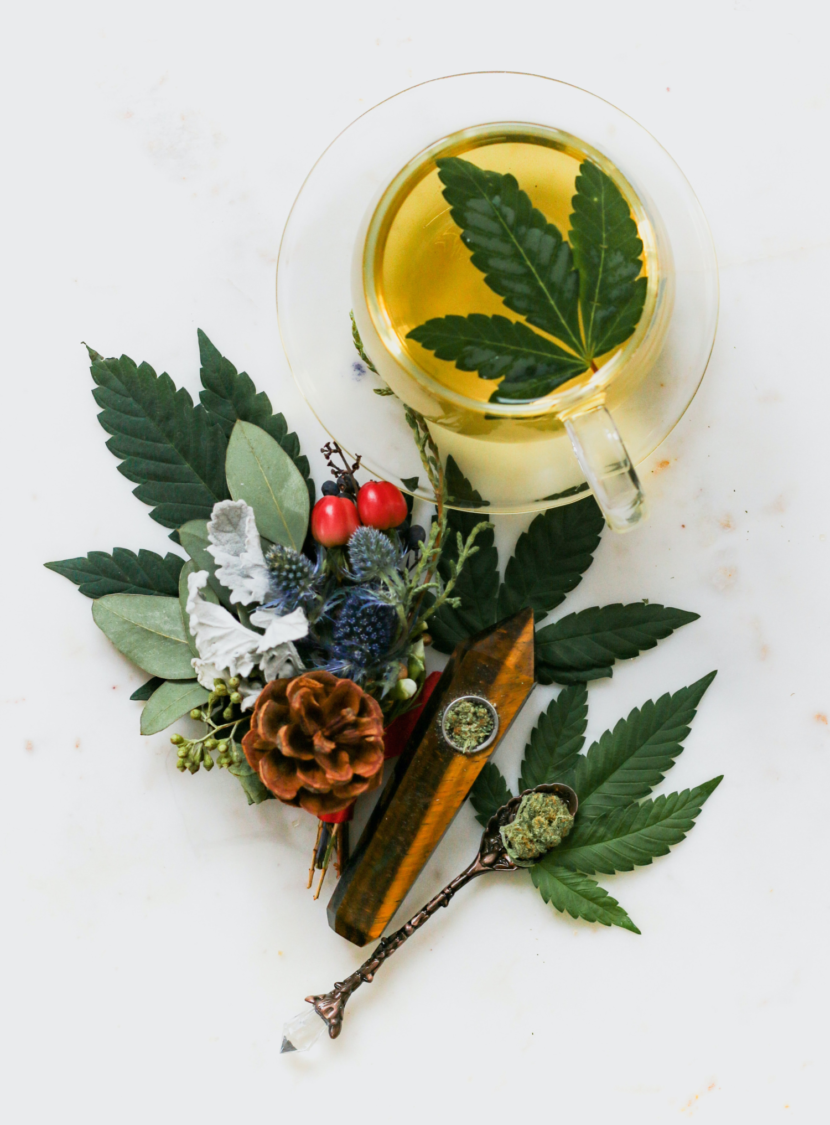Marijuana contains potent levels of THC that make us high and sleepy. But what about hemp? Can hemp-derived products really pack the same sleep-inducing punch as cannabis? The short answer is yes.
Hemp-derived products contain the same compounds as marijuana, including Delta-9 THC and non-psychoactive compounds like CBD, CBG, CBN, and CBC. Hemp products can also contain THC isomers and analogs, like Delta-10, Delta-8, HHC, and THC-O. These full-spectrum hemp extracts act like marijuana in the brain and body to deliver sleep-enhancing effects.
Here we look at hemp-derived THC products for sleep and why they work so well.
How THC Works in the Brain
Every bodily function relies on brain cells communicating with each other via neurotransmitters. THC looks and acts like our body’s naturally occurring neurotransmitters. binding with receptors in the brain called “cannabinoid receptor type 1,” or CB1 for short. This action spurs the release of chemicals that regulate our sense of pleasure, pain, appetite, and sleep.
Here’s how it works:
- When THC binds to CB1 receptors, it sends messages to increase sleep-promoting adenosine levels and suppress the brain’s arousal system.
- THC also causes brain cells to release dopamine, a feel-good brain chemical. When we feel happier, we tend to relax and sleep better.
- Research suggests that higher dopamine levels could alter the sleep-wake cycle by mimicking melatonin, our natural sleep hormone, and possibly increasing its production.
How THC Affects Sleep and Its Cycles
THC has several sleep-promoting properties. Studies show that THC helps us fall asleep faster and decreases how often we wake up. In a 2017 survey of over 1,500 medical marijuana patients, roughly two-thirds decreased their use of pharmaceutical sleep medications after using cannabis. Fortunately, hemp-derived THC products deliver the same sedative effects.
THC also alters our sleep cycles. A study in the Sleep Medicine Reviews Journal found that THC affects sleep cycles in two main ways:
- THC increases slow-wave deep sleep. Deep sleep is critical because it’s when the body slows down to focus on repairing damaged cells and detoxifying the brain, helping you wake up feeling refreshed.
- THC decreases REM sleep. By reducing REM sleep, THC also minimizes dreaming. This effect can benefit people who have insomnia due to nightmares, such as PTSD patients.
Keep in mind that short-term THC use may be best due to the long-term risks of REM suppression. Temporary REM suppression benefits certain people, but studies show that dreaming is also essential for processing emotions and solidifying memories.
Additionally, long-term THC use for sleep can lead to physical tolerance, requiring higher and higher dosages to achieve the same results. This can adversely affect sleep in the long run.
Delta-8, Delta-10, THC-O, and HHC for sleep
The Farm Bill legalized the sale of hemp products and compounds, which include hemp-derived Delta-9 THC (below 0.3%) and psychoactive compounds like Delta-8, Delta-10, THC-O, and HHC. These compounds are also psychoactive and reportedly mimic THC’s relaxing and sedating properties.
Delta-8 for sleep
Delta-8 is one of the fastest-growing compounds on the hemp market. It’s chemically similar to Delta-9 with slightly milder effects.
- Similar effects: Delta-8 THC appears to use mechanisms similar to Delta-9 to support healthier sleep patterns, such as increasing dopamine and melatonin production. In an online survey, users reported relaxation (71%), euphoria (68%), and pain relief (55%) as important Delta-8 THC benefits.
- Lower potency: Delta-8 THC appears to have a lower affinity for the CB1 receptor in our brains, making it less potent than Delta-9 THC. Lower strength means Delta-8-THC may provide many of Delta-9’s benefits but with fewer adverse effects, such as paranoia.
Delta-10 for sleep
Like Delta-8, Delta-10 shares much in common with Delta-9 THC, so it has a good chance of offering sleep improvement. The key points we know about Delta-10 for sleep include the following:
- Similar effects: Delta-10 shares anxiety-reducing properties with other THC types, including the potential to regulate melatonin and overall circadian rhythm.
- More uplifting: Most users describe the high from Delta-10 as uplifting, motivating, and particularly euphoric. This effect might benefit those who have trouble sleeping due to mood-related issues.
THC-O for sleep
THC-O is made from chemically altering Delta-8 THC. A few key points we know about THC-O for sleep include:
- Similar effects: Users say THC-O promotes relaxation and can help combat the stress, anxiety, and muscle tension that often inhibit restful sleep.
- More potent: THC-O may be up to three times more powerful than Delta-9 THC in its ability to affect muscle and nervous system function, making it a potentially potent sleep inducer.
- GABA production: THC-O encourages the body to produce GABA (gamma-aminobutyric acid), a neurotransmitter that slows down nerve impulses and can induce feelings of well-being and sleepiness.
HHC for sleep
HHC (hexahydrocannabinol) is a more recent entry to the hemp market, so it has the least information available. From a chemical standpoint, HHC includes a hydrogen molecule that THC does not, yet it still shares many of Delta-9’s therapeutic benefits.
- Similar effects: According to HHC fans, this compound is an appetite stimulant and mood stabilizer that reduces pain and anxiety. These properties make HHC a potential sleep aid.
- More calming: HHC is less potent than Delta-8 THC, which is less powerful than Delta-9 THC. Users report a more gradual onset followed by a calming and smooth experience, which could benefit people trying to sleep better.
The Bottom Line
Like marijuana, hemp-derived psychoactive products containing Delta-9, Delta-8, Delta-10, THC-O, and HHC boost our mood, relieve pain, and increase relaxation. As a result, hemp-derived products can work just as well as marijuana for sleep, helping us fall asleep faster and increasing time spent in deep sleep stages. For people seeking a legal alternative to high-THC cannabis for catching more Z’s, check out the wide selection of hemp-derived THC products available.










Trackbacks/Pingbacks